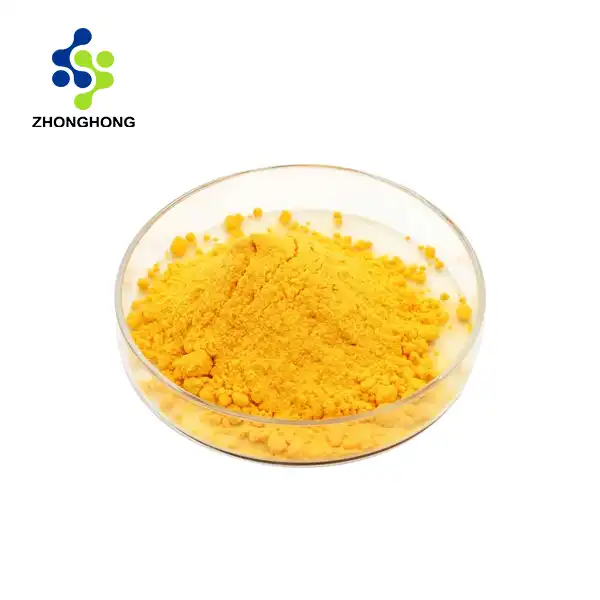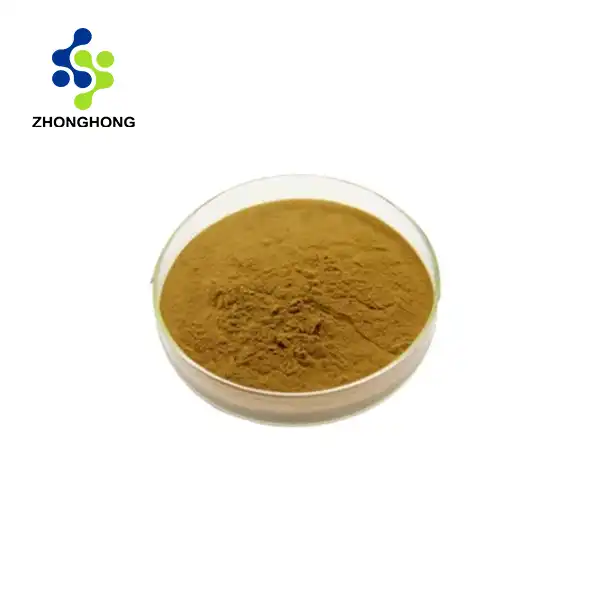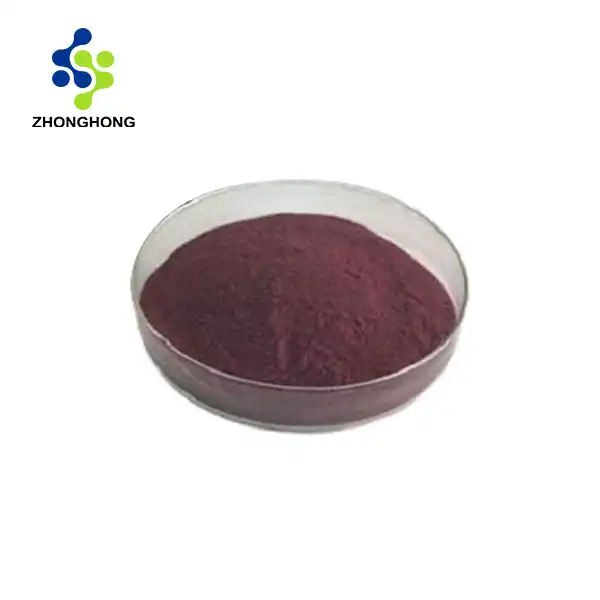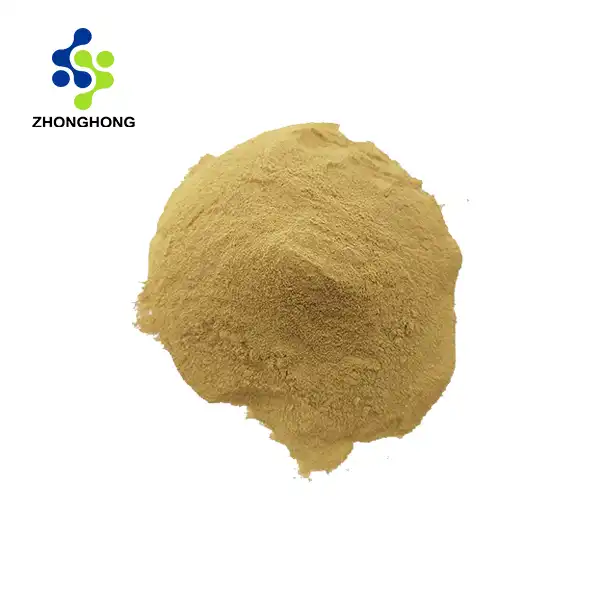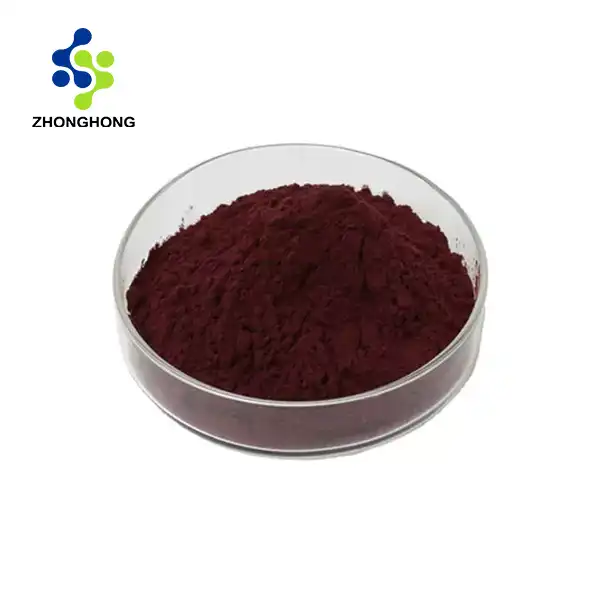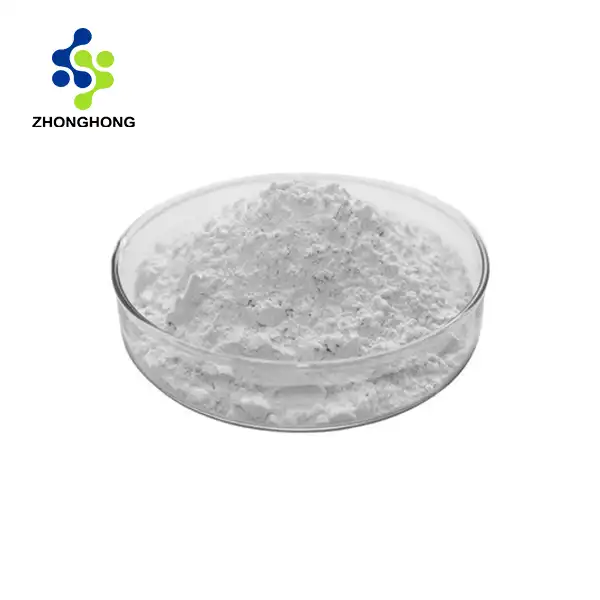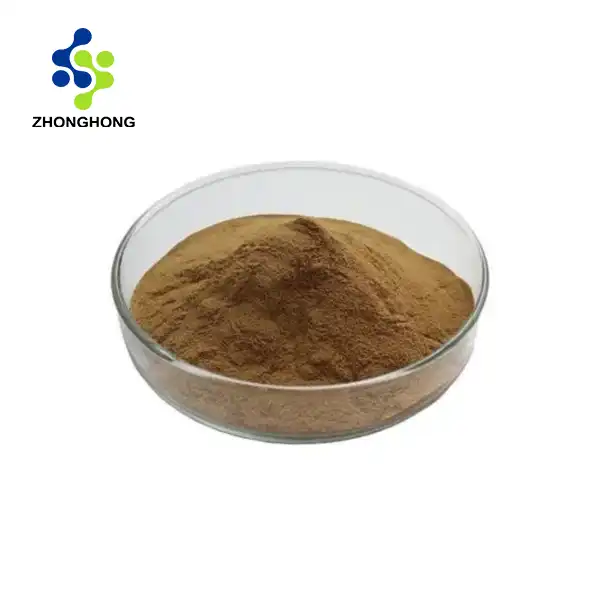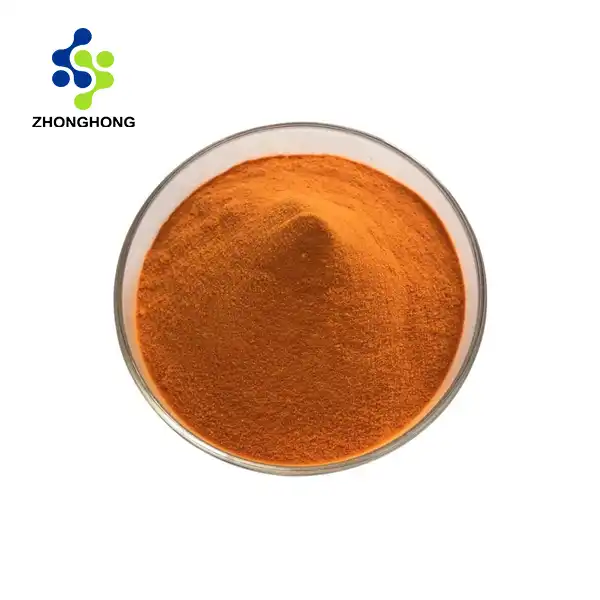What is Matrine used for?
2025-01-16 16:43:46
Matrine, a bioactive alkaloid derived from plants of the Sophora genus, has garnered significant attention in the scientific community for its diverse applications. Primarily extracted from Sophora flavescens, commonly known as Ku Shen, Matrine powder exhibits a wide range of biological activities that make it valuable in various fields. Its uses span from traditional medicine to modern pharmaceutical research, showcasing its potential in addressing multiple health concerns and industrial applications. Matrine is renowned for its anti-inflammatory, antiviral, antimicrobial, and anticancer properties. In traditional Chinese medicine, it has been used for centuries to treat conditions such as hepatitis, cardiac arrhythmia, and skin disorders. Modern research has expanded our understanding of Matrine's potential, revealing its efficacy in combating liver fibrosis, suppressing tumor growth, and even showing promise in treating certain autoimmune diseases. Its versatility extends beyond medicine, finding applications in agriculture as a natural pesticide and in the cosmetics industry for its skin-benefiting properties.
Pharmaceutical Applications of Matrine
Anticancer Properties
One of the most promising areas of Matrine research lies in its potential as an anticancer agent. Studies have shown that Matrine powder can inhibit the proliferation of various cancer cell lines, including those of liver, lung, and breast cancers. Its mechanism of action involves inducing apoptosis (programmed cell death) in cancer cells while sparing healthy cells. This selectivity makes Matrine powder an attractive candidate for cancer therapy development, potentially offering a more targeted approach with fewer side effects compared to traditional chemotherapy.
Liver Protection and Hepatitis Treatment
Matrine has demonstrated significant hepatoprotective effects, making it valuable in treating liver diseases. Research indicates that it can reduce liver inflammation, inhibit hepatic fibrosis, and improve liver function in patients with chronic hepatitis B. These properties stem from Matrine's ability to modulate immune responses and reduce oxidative stress in liver tissues. As a result, Matrine-based formulations are being explored as adjunct therapies in the management of various liver disorders.
Cardiovascular Benefits
The cardiovascular system also benefits from Matrine's therapeutic properties. Studies have shown that Matrine can help regulate heart rhythm, potentially aiding in the treatment of arrhythmias. Additionally, its anti-inflammatory and antioxidant effects contribute to overall cardiovascular health by protecting blood vessels and reducing the risk of atherosclerosis. These findings suggest that Matrine could play a role in developing new treatments for heart-related conditions.
Agricultural and Industrial Uses of Matrine
Natural Pesticide
In agriculture, Matrine powder has gained attention as an eco-friendly alternative to synthetic pesticides. Its insecticidal properties make it effective against a variety of crop pests, including aphids, mites, and thrips. Unlike many chemical pesticides, Matrine breaks down quickly in the environment, reducing the risk of long-term soil and water contamination. This characteristic aligns with the growing demand for sustainable agricultural practices and organic farming methods.
Plant Growth Regulation
Beyond pest control, Matrine has shown potential in enhancing plant growth and development. Some studies suggest that it can stimulate root growth and improve plant resistance to environmental stresses. This dual action as both a protectant and growth promoter makes Matrine an attractive option for improving crop yields while minimizing environmental impact.
Industrial Applications
The industrial sector is also exploring Matrine's unique properties. Its antimicrobial activity has led to investigations into its use as a natural preservative in food and cosmetic products. Additionally, the textile industry is researching Matrine as a potential eco-friendly dye fixative, leveraging its ability to bind with certain pigments and fibers. These applications highlight Matrine's versatility beyond medicine and agriculture.
Safety and Future Prospects of Matrine Use
Safety Profile
While Matrine powder offers numerous potential benefits, understanding its safety profile is crucial for its widespread application. Generally, Matrine is considered safe when used appropriately, with minimal side effects reported in clinical studies. However, as with any bioactive compound, proper dosing and administration are essential to avoid potential toxicity. Ongoing research continues to evaluate the long-term safety of Matrine use, particularly in pharmaceutical applications where higher concentrations may be employed.
Regulatory Considerations
The regulatory landscape surrounding Matrine varies globally. In some countries, particularly in Asia, Matrine-containing products are already approved for certain medical uses. However, in many Western nations, Matrine is still primarily considered a research compound. As more clinical data becomes available, regulatory bodies are likely to reassess Matrine's status, potentially paving the way for broader approved uses in medicine and other industries.
Future Research Directions
The future of Matrine research looks promising, with several avenues being actively explored. In medicine, there's growing interest in combining Matrine with other therapies to enhance treatment efficacy, particularly in cancer and chronic disease management. Agricultural research is focusing on optimizing Matrine formulations for pest control while minimizing environmental impact. Additionally, the potential for Matrine in nanotechnology and drug delivery systems is an emerging area of study, aiming to improve its bioavailability and targeted delivery in various applications.

Conclusion
Matrine powder emerges as a versatile compound with applications spanning medicine, agriculture, and industry. Its natural origin and diverse biological activities make it an attractive option for developing sustainable solutions in various fields. As research continues to unveil new potential uses and refine existing applications, Matrine stands poised to play an increasingly significant role in addressing global challenges in health, agriculture, and environmental sustainability. If you want to get more information about this product, you can contact us at liaodaohai@gmail.com.
References
1. Zhang, L., et al. (2020). "Matrine: A Review of Its Pharmacology, Pharmacokinetics, Toxicity, Clinical Application and Preparation." Molecules, 25(9), 2200.
2. Liu, Y., et al. (2019). "Matrine inhibits proliferation and induces apoptosis of pancreatic cancer cells in vitro and in vivo." Biological and Pharmaceutical Bulletin, 42(2), 322-327.
3. Sun, N., et al. (2018). "Matrine displayed antiviral activity in porcine alveolar macrophages co-infected by porcine reproductive and respiratory syndrome virus and porcine circovirus type 2." Scientific Reports, 8(1), 517.
4. Wang, L., et al. (2017). "Matrine inhibits the invasive properties of human osteosarcoma cells by downregulating the ERK-NF-κB pathway." Anti-Cancer Drugs, 28(2), 161-171.
5. Yang, Y., et al. (2016). "Matrine induces apoptosis of human multiple myeloma cells via activation of the mitochondrial pathway." Leukemia & Lymphoma, 57(9), 2169-2178.
6. Zhou, H., et al. (2015). "Matrine induces caspase-independent program cell death in hepatocellular carcinoma through bid-mediated nuclear translocation of apoptosis inducing factor." Molecular Cancer, 14(1), 74.
YOU MAY LIKE
_1728976869676.webp)
